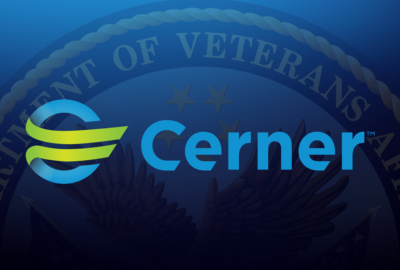

Congress is wise to jump onto oversight of two departments' electronic health records projects.
Daily crossword puzzle addicts know that the puzzle gets harder as the week drones on. I can tell within a few minutes if I’ll get through most or all of Saturday’s challenge. The longer it takes to solve the first few clues, the less likely I’ll finish the puzzle.
My goal is puzzle tempo, not slog.
Tempo — it’s an important quality to getting things done. Former President Bill Clinton is a famous doer of crossword puzzles. He even wrote one for the New York Times. You could argue that Clinton’s life has had a respectable tempo. He was elected President at the age of 46.
This all came to mind when reading about the upcoming hearing of James Gfrerer to become chief information officer at Veterans Affairs. If confirmed, the Navy Academy grad, career Marine and former Ernst & Young director will need to establish tempo.
The VA’s project to replace its Vista electronic health record has stalled. One reason is there’s no one really in charge. A parade of people has passed through the VA’s CIO office over the last year and a half. History shows the longer these projects drag on without showing tangible progress, the worse they’re likely to go in the long run. No doubt in members’ minds the Coast Guard’s failed effort at a new EHR. After throwing away tens of millions of dollars, the Coast Guard ended up going back to paper records.
When former Secretary David Shulkin established the VA project by fiat, he likely thought he was slicing through a gordian knot. He may have actually woven a new one.
I wrote recently that if VA Secretary Robert Wilkie does nothing but fix the personnel and personnel management issues at the department, he’ll be a success. If Gfrerer would do nothing other than getting the VA’s new electronic health record project righted and on a good tempo, he too would be a success. Like a tough puzzle, this project seems to be going nowhere fast.
Congress is already fed up with the effort, as it is with a parallel effort in the Defense Department. Both departments are working on new EHRs from the same vendor. In theory the results will be interoperable records. The Veterans Affairs Committee even has a special sub-panel just to oversee VA modernization projects. Subcommittee Chairman (R-Ind.) has expressed “great concern about the deteriorating and rudderless leadership” of the EHR program.
Banks only came to Washington last year, but I imagine he’s been briefed about the dreary record these big IT projects have. He’s right to focus on the need for sustained management. Someone has to own that project. The owner will have to ride herd on the requirements generated by VA and on the contractors.
In theory, VA, like DoD, is adopting a commercial product, in this case MHS Genesis from the Cerner Corp. Judging from the DoD’s slow and partially effective initial installations, it feels like a development project. Senators added an amendment to an appropriations bill to have the Government Accountability Office look into it. They don’t need a new law to have GAO examine something, though. DoD is already under a legal mandate to have its own independent study done.
I’ve often observed when congressional oversight is petty or interfering. In these cases it’s merited and coming early enough to prevent billions from going down the drain.
Copyright © 2025 Federal News Network. All rights reserved. This website is not intended for users located within the European Economic Area.
Tom Temin is host of the Federal Drive and has been providing insight on federal technology and management issues for more than 30 years.
Follow @tteminWFED


